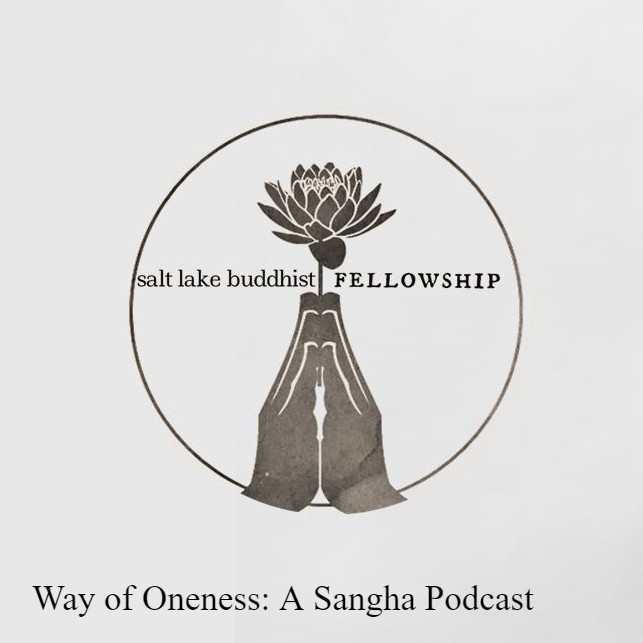 |
Way of Oneness: A Sangha PodcastAuthor: Christopher Kakuyo Leibow
Dharma talks from the Salt Lake Buddhist Fellowship Language: en Genres: Religion & Spirituality, Spirituality Contact email: Get it Feed URL: Get it iTunes ID: Get it |
Listen Now...
3rd Foundational Dharma Talk: Mono No Aware - Embracing Impermanence
Episode 44
Monday, 24 April, 2023
Excerpt: At the heart of the teaching of impermanence is conditioned existence but what is conditioned existence? Conditioned existence is the reality that all phenomena, all things that exist arise in dependence upon other phenomena: "if this exists, that exists; if this ceases to exist, that also ceases to exist" This is the heart of impermanence of all - because all things all phenomena arise out of conditions and when the condition causes it to arise, cease then, that which arose, vanishes or transforms into something different. That is way the Buddha says, “All conditioned things have the nature of vanishing,” Let that sink in Everything by its nature vanishes. In Japanese the heartbreak, the melancholy of the impermanence of all things is summed up in the phrase Mono no Aware. Mono-no-aware can’t truly be translated. Any one who speaks another language understands this but it can be literally translated to “the ahhness of things” The isness of things or “the bittersweet poignancy of things.” I remember some years ago reading the introduction to one of my favorite poets Eugenio de Andrade. The poet writes from his love of the world and the grief and praise that come from its transience. Something that I am learning as of late is that Grief and Praise are intertwined, as Martin Prechtel teaches us in his book, The Smell of Rain on Dust. So too are impermanence and gratitude. Now the concept of mono-no-aware is born from the teachings of shinto and Buddhism, and was first used to explain Japanese aesthetics to explain uch traditions as cherry-blossom viewing and haiku. But this insight is much more than simply aesthetics. Mono No Aware is at the heart of a meaningful everyday Buddhism.








